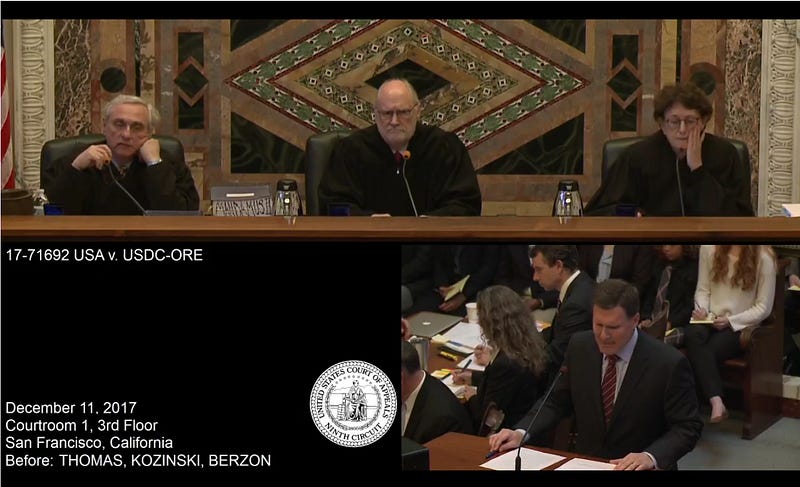Juliana vs. US: No Longer Stayed Supreme Court Rules the Trial May Begin
(November 2, 2018)
(November 2, 2018)
Late this afternoon the US Supreme Court (SCOTUS) released a brief 3-page order denying the Trump administration’s motion to dismiss the Juliana case in advance of trial. The allowance to proceed comes as something of a surprise as it follows Chief Justice Roberts’ stay of the trial just days before it was scheduled to begin in an Oregon federal district court.
I and others saw Roberts’ stay of the trial as a sign that the five conservative members of the High Court didn’t think the case could stand on its merits. I had written earlier that Chief Justice Roberts’ stay of the case before trial is generally considered as an extraordinary step. A step that was taken several years earlier by the Court preventing the Clean Power Plan from going into effect.
It was the second time Administration attorneys had asked SCOTUS to dismiss the case. The first denial of the government’s motion was the last official act of Justice Anthony Kennedy. Kennedy had provided the swing vote in several landmark environmental law cases including Massachusetts vs. EPA.
The appointments of Justices Gorsuch and Kavanaugh to fill the seats of Justices Scalia and Kennedy were thought likely to lead to a grant of the second (mandamus) motion that would have effectively served to stay the case permanently. As it turned out, a majority of the Court confirmed its previous opinion — that dismissal on the merits was premature — and the views of the trial court and the Ninth Circuit Court of Appeals. Justices Gorsuch and Thomas would have granted the government’s request.
Friday’s order allows the case to go to trial; it is not an opinion on either the merits of the plaintiffs’ allegations and arguments accusing the federal government of failing in its constitutional obligation to protect them from the ravages of global warming. Neither is the order affirmation of a federal court’s ability to redress plaintiffs’ grievances.
The plaintiffs will now ask the federal court in Oregon to set a new trial date. The trial is expected to take up to two months. It will be the first time that climate science is called to the witness stand. Once the trial begins Administration lawyers are likely again to seek a dismissal claiming some variation of its previous argument that the court is addressing a political question that can only be answered by Congress and the president.
It may be years before a final decision in the case will be made.



